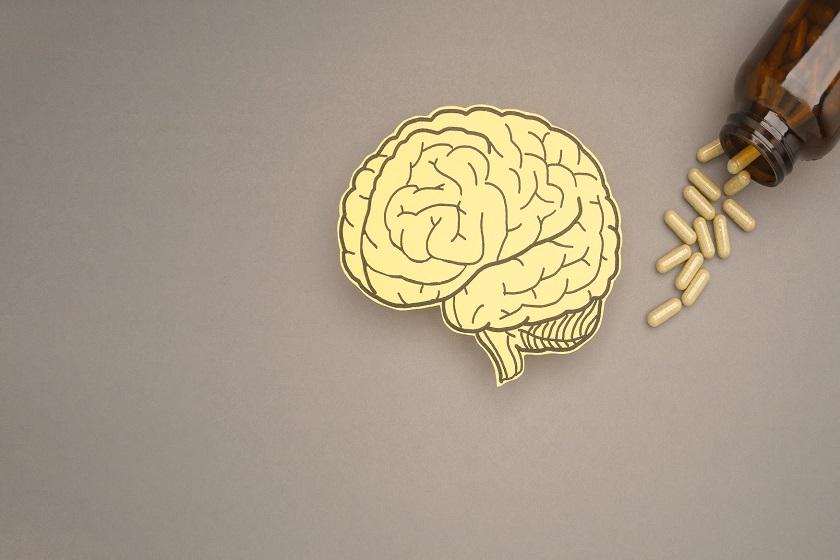
The Mediterranean diet is delicious and nutritious, thanks to its many flavorful ingredients like fruits, vegetables, whole grains, and heart-healthy fats. The Mediterranean diet prevents dementia because the diet improves brain function, boosts heart health, and manages blood sugar levels.
Although there are no specific guidelines for adopting the Mediterranean diet, there are several essential tips for applying the diet’s principles to your daily life. According to research, people who followed the Mediterranean diet performed better on memory tests than those who did not. Let’s learn more about this diet.

Contents
What is The Mediterranean Diet?
The traditional foods that people in the Mediterranean Sea-adjacent nations like France, Spain, Greece, and Italy used to eat are the basis of the Mediterranean diet. Interestingly, the researchers discovered that these people were remarkably healthy and had a reduced risk of several chronic diseases.
Although the diet has no rigid rules, it often encourages fruits, vegetables, whole grains, legumes, nuts, seeds, and heart-healthy fats. Also, in this diet, there’s a limitation on processed foods, refined carbohydrates, and added sugar.
Several studies have indicated that following a Mediterranean diet can aid in weight loss and reduce the likelihood of developing dementia, cardiovascular disease, stroke, and diabetes. So, the diet may also help people live longer. As a result, many health experts suggest the Mediterranean diet to prevent and treat chronic diseases.
Why a Mediterranean Diet Prevents Dementia
High antioxidants in fruits and vegetables may help protect brain cells from some Alzheimer’ s-related damage.
Alzheimer’s disease is linked to inflammation, which may contribute to the development of the illness. There is evidence that the diet can minimize the symptoms of such inflammation.
This diet has been related to reduced cholesterol levels, which some recent studies have revealed may be linked to cognitive impairments, including memory loss.
Although the research evidence is quite encouraging, it is essential to note that other recent large-scale investigations have not revealed comparable patterns.
It is also worth noting the studies were observational; thus, they cannot prove direct cause and effect the same way a trial might.
People who follow Mediterranean diets may have healthier lives. It is possible that this, rather than the diet itself, causes the difference in memory and cognitive problems.

How To Follow Mediterranean Diet?
Here is a brief instruction for the Mediterranean diet:
- Consume Vegetables, fruits, nuts, seeds, legumes, potatoes, whole grains, herbs, spices, fish, seafood, and extra virgin olive oil
- Consume in moderation: Poultry, eggs, cheese, and yogurt
- Avoid Red meat, sugar-sweetened beverages, added sugars, processed meat, refined grains, refined oils, and other highly processed meals.
Foods to Eat
The Mediterranean diet’s specific foods are debatable due to regional differences. Most research diets emphasize plant-based nutrition while limiting the consumption of meat and other animal products. However, consuming fish and seafood at least twice a week is necessary.
Regular exercise and less stress are additional components of the Mediterranean lifestyle.
You can mix fresh, frozen, dry, and canned fruits and vegetables into your diet, but read the product labels for added sugar and sodium information.

A healthy Mediterranean diet should ideally consist of the following foods:
- Fruits: Oranges, pears, strawberries, bananas, apples, grapes, dates, figs, melons, and peaches
- Seeds, nuts and nut butter: Almonds, walnuts, macadamia nuts, hazelnuts, cashews, sunflower seeds
- Legumes: Peas, beans, lentils, pulses, peanuts, chickpeas
- Whole grains: Brown rice, oats, corn, buckwheat, whole wheat bread, and barley
- Fish and seafood: Salmon, trout, tuna, sardines, mackerel, shrimp, oysters, clams, crab, and mussels
- Poultry: Chicken, turkey and duck
- Eggs: Chicken, quail, and duck eggs
- Dairy: Yogurt, milk, cheese
- Herbs and spices: Mint, garlic, basil, rosemary, sage, nutmeg, cinnamon, pepper
- Healthy fats: Extra virgin olive oil, avocado oil
Foods to Avoid
When following the Mediterranean diet, you should minimize the following processed foods and ingredients:
- Added Sugar: Soda, candies, ice cream, table sugar, syrup, and baked goods
- Refined Grains: Pasta, white bread, tortillas, chips, crackers.
- Trans Fats: Fried foods, margarine, and other processed foods.
- Refined oils: Soybean oil, canola oil, cottonseed oil, grapeseed oil
- Processed meat: Sausages, hot dogs, deli meats, beef jerky
- Highly processed foods: Fast food, convenience meals, microwave popcorn, granola bars.
Beverages
On a Mediterranean diet, water should be your primary beverage. This diet also includes one glass of red wine every day.
While this is optional, certain people should avoid wine, such as those who have trouble controlling their drinking or are on medications that could interact with alcohol.
On the Mediterranean diet, coffee and tea are also healthy beverage options. It’s important to avoid using too much sugar or cream.

Supplements to Prevent Alzheimer’s and Dementia
Certain supplements, according to research, can reduce the risk of memory loss and dementia.
Below, we look at the vitamins and supplements to prevent dementia that have the most supporting research:
B Vitamins: B3, B6, B12, & Folic Acid(B9)
B vitamins play a crucial part in humans’ brains and nervous systems. They are in charge of the formation and maintenance of brain cells.
Researchers from Oxford University and the Centers for Disease Control and Prevention discovered that people who took a B vitamin supplement were less likely to develop Alzheimer’s disease than those who did not.
Vitamin E
Vitamin E deficiency is common in dementia patients, and because of its anti-oxidative qualities, researchers believe Vitamin E can help treat Alzheimer’s disease.
According to one study, patients who took this vitamin had a slower decline and were able to complete tasks that other people could not.
Bacopa Monnieri
Bacopa blocks and eliminates many toxic chemicals from the brain, which are thought to be one of the critical causes of Alzheimer’s disease.
According to the researchers, it positively impacts people with Alzheimer’s and is a “promising drug in Alzheimer’s Disease treatment and other kinds of dementia.”
Salvia Officinalis (Sage)
Sage is among the supplements to prevent Alzheimer’s. According to research, Salvia Officinalis lowers inflammation and shields the brain from the damaging cholinesterase enzyme, which is linked to the brain damage associated with Alzheimer’s disease.
Several studies have revealed it improves cognitive function.
D vitamin
Because of the significant complications connected with insufficiency and around 95 percent of seniors being vitamin D deficient, it is one of the most critical supplements to prevent dementia.
Two studies looked at 4,500 people over the age of 65. They both discovered that lower levels of Vitamin D were linked to poor mental function.
Curcumin from Turmeric
Curcumin has been examined for its potential advantages to the brain and memory. It dissolves Amyloid-beta plaques, a significant cause of Alzheimer’s disease.
Studies show that curcumin will lead to a promising treatment for Alzheimer’s. Those who took curcumin reported considerable improvements in their memory and concentration abilities.
Omega 3-6-9
Omega 3-6-9 fatty acids are essential nutrients for brain development. Their positive effects on memory and intelligence are well documented and are among the supplements to prevent dementia.
According to studies, those who consume more Omega 3-6-9 have “better memory recall and learning” and are 41% less likely to develop dementia.
Consult your healthcare provider before changing your diet or taking supplements.
Final Words
Only further research will reveal how the Mediterranean diet can reduce the risk of dementia.
Seniors who stick to this diet have longer, healthier lives, with a lower risk of stroke, heart disease, hypertension, and cancer. To improve the well-being of seniors with dementia, caregivers can prepare meals that follow this diet.
As someone who has followed the Mediterranean diet for several years, it has positively impacted my health and overall well-being. But reading this article, I am even more convinced of its benefits, especially regarding reducing the risk of dementia. It’s great to see that scientific evidence supports the idea that the Mediterranean diet can help protect the brain against cognitive decline and memory loss.
Personally, I love the delicious and nutritious foods that are part of this diet, such as olive oil, fish, nuts, fruits, and vegetables. And knowing that they are also suitable for my brain health is a wonderful bonus. I encourage everyone to incorporate more Mediterranean-style meals into their diet for taste, pleasure, and potential long-term benefits.